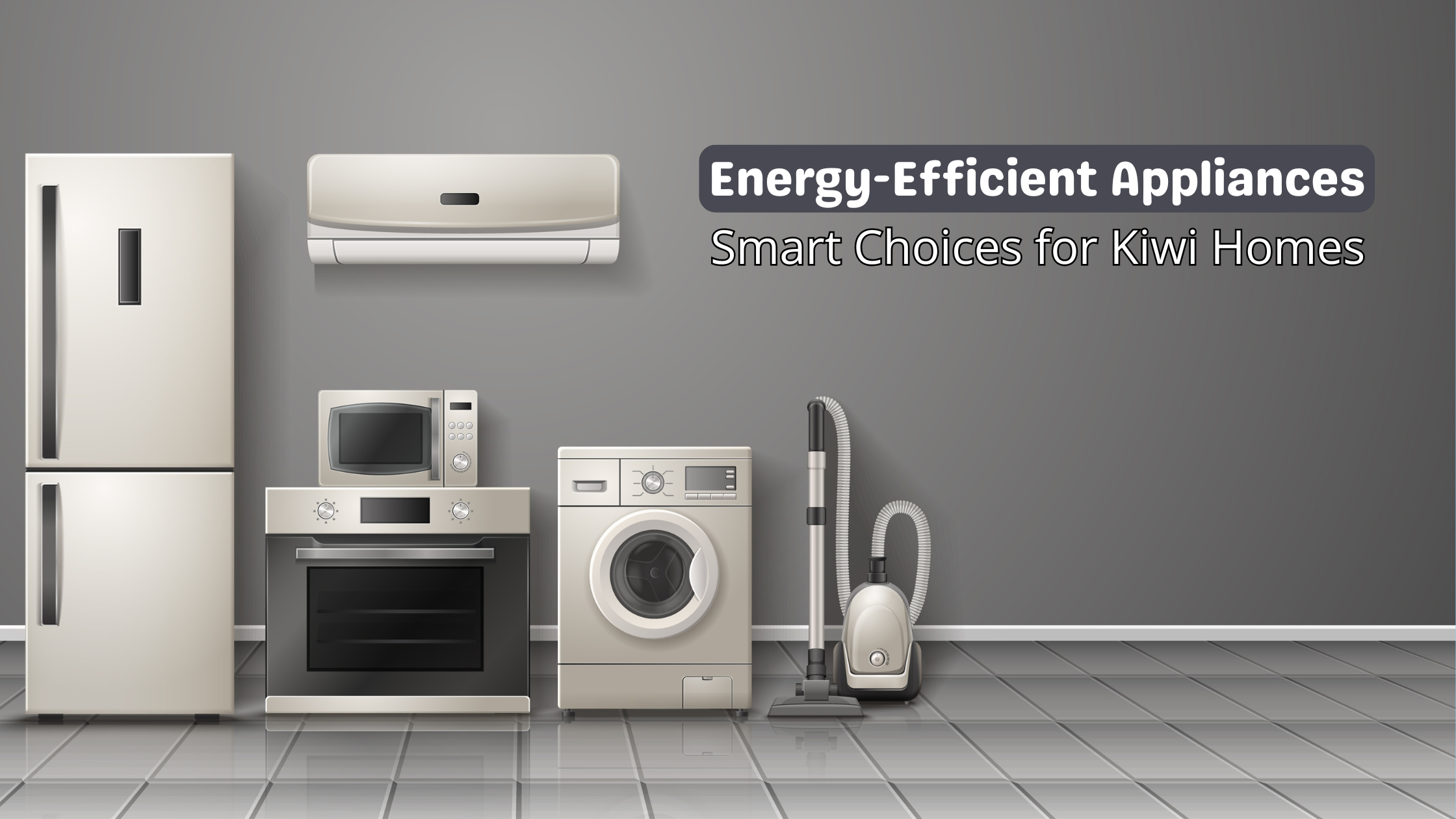
When it comes to reducing your power bill and carbon footprint, upgrading to energy-efficient appliances is one of the smartest choices New Zealand households can make. But with so many options and labels out there, how do you know what to look for? This blog walks you through the key factors, rating systems, and practical tips for choosing better appliances that save both energy and money.
1. Why Energy Efficiency Matters Appliances account for around 30% of the average NZ household’s electricity use (EECA). Energy-efficient upgrades can:
- Lower electricity bills
- Reduce greenhouse gas emissions
- Improve appliance lifespan and performance
Over a decade, a few smart appliance choices can save hundreds to thousands of dollars.
2. Understanding the Star Rating System New Zealand uses the Energy Rating Label (joint with Australia), which shows how efficient an appliance is compared to others of the same type. The more stars, the more efficient.
Key Tips:
- White Stars = energy performance
- Red Stars = super-efficient products (beyond the minimum standards)
- Always compare models of the same size and type (e.g., 400L fridge vs 400L fridge)
Bar Chart: Estimated Annual Running Cost
6-Star Fridge | ████ $80/year
3-Star Fridge | ██████████ $150/year
Old Fridge | ██████████████ $280/year
3. Appliances That Matter Most Some appliances use more power than others. Focus on upgrading these first:
|
Appliance |
Share of Household Use |
Upgrade Potential |
|
Heat Pump |
29% |
Very High |
|
Fridge/Freezer |
12% |
High |
|
Washing Machine |
9% |
Medium |
|
Dryer |
7% |
High |
|
Oven/Stove |
8% |
Moderate |
Tip: Replacing a 10-year-old fridge with a 4-star model can save up to $150 per year.
4. Look for These Features When Shopping
- Inverter Technology: Uses less power by adjusting motor speed (common in fridges and washing machines)
- Eco Modes: Reduce energy and water usage
- Size Appropriateness: Don’t overbuy—larger appliances cost more to run
- Timer Functions: Delay start for off-peak energy savings
- Smart Sensors: Adjust settings automatically for efficiency
5. Disposal & Recycling Upgrading? Make sure to dispose of old appliances responsibly:
- Ask your retailer if they’ll take back the old one
- Use council or third-party e-waste services
- Avoid dumping in landfills—old fridges can leak harmful gases
Conclusion: Smart Upgrades Lead to Long-Term Gains Energy-efficient appliances don’t just reduce your bills—they make your home more sustainable. Use the Energy Rating Label as your guide, and start by replacing the biggest energy users first. For more personalised advice and to see products in action, visit the upcoming Electrify The Hutt Expo and chat with suppliers and energy experts in person.